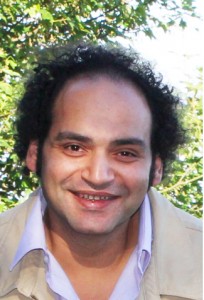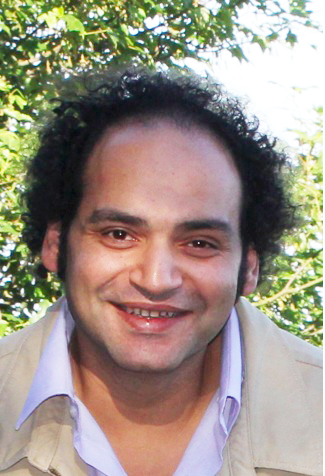 It is finally here, the big event the Muslim Brotherhood has been eagerly waiting for. The constitutional referendum is finally taking place as this column is being written. There is no question that this referendum is indeed a historic moment that will be remembered. However, while I confess to the referendum being a historic event, I also believe it is historic for all the wrong reasons.
It is finally here, the big event the Muslim Brotherhood has been eagerly waiting for. The constitutional referendum is finally taking place as this column is being written. There is no question that this referendum is indeed a historic moment that will be remembered. However, while I confess to the referendum being a historic event, I also believe it is historic for all the wrong reasons.
During the 18 days in Tahrir from 25 January to 11February, the idea of seeing a non-patriarchal democratic constitution being written by Egyptians for Egypt was such an inspiring dream. I admit to being one of those who thought about the day such a constitution would be put to referendum with a big smile.
But what is historic about this referendum is not how it translates the principles and demands of the revolution into constitutional articles for the state to abide by, or how it carries the vision and the spirit of 25 January and delivers it to all Egyptians.
The real historic event is that Egyptians are voting in a referendum over a constitution that spells out political theft, majority domination and lack of equal representation. This referendum is nothing but a state-sponsored celebration of the Muslim Brotherhood’s vision for Egypt.
The constitution written by the Brotherhood, the Salafists and other Islamists is in fact a political and economic agenda rather than a representative constitution. The referendum is not only historic because it was written by one faction of society, it is historic because the same people who wrote the draft are the same people lobbying for a “Yes” vote, who also happen to be the same people responsible for monitoring and administering the referendum.
In other words, the constitution and its referendum come from the Brotherhood, for the Brotherhood and through the Brotherhood. Ladies and Gentlemen, we are definitely watching history.
What is even more ridiculous than the draft constitution is the conditions surrounding the referendum. Less than 24 hours ago, a new incident of violence took place in Alexandria. Nine days ago, similar violent clashes were taking place around the Presidential Palace. Blood was spilled and the ugly face of dogma was bluntly staring at Egyptians in the eye.
But the violence fueled by the Muslim Brotherhood and the president’s polarisation of the public over the constitution did not stop Morsy’s administration from pushing the referendum forward. In fact, instead of trying to diffuse tension and limit the possibilities of violence through effective dialogue, Morsy held a dialogue with those who share his vision and gave the military the authority to arrest civilians in defence of the referendum.
Civil society organisations that ought to monitor the referendum were put under the authority of Egypt’s National Council for Human Rights. Hossam el-Gheryany who happens to chair the assembly that drafted the constitution also chairs the council. So another historical aspect of this referendum is the fact that Gheryany’s council will monitor the referendum on the draft written by Gheryany’s assembly, what a man!
In the middle of these tensions, the people who wrote the constitution are not busy in a dialogue over what they produced, they are caught up either lobbying and mobilising for a yes vote or discrediting and offending those who criticise and oppose their work. It was indeed ironic to see Mohamed Al-Beltagy, a member of an illegal entity like the Muslim Brotherhood, asking about the sources of funding of formal and legal political parties.
Constitutions are not political battles; they are public dialogues about principles, values, practices and policies. The Muslim Brotherhood and its allies have turned the constitution not only to a political battle, but to a cultural and religious one as well.
What Morsy’s administration did over the past two weeks was employ all tactics of political aggression possible to ensure that this referendum takes place. A politically enforced referendum over a non-representative corrupt constitution is exactly what Egyptians are voting on.
Regardless what the final result of the referendum will be, this constitution is nothing but a big mistake because of how it was written and by whom. How can a constitution be thought about in terms of majority and minority? How can a constitution represent all Egyptians when only one faction of them supports it? How can Egypt draft a constitution without representation from the Coptic Church? “Yes” or “No”, it still is a referendum of shame.



